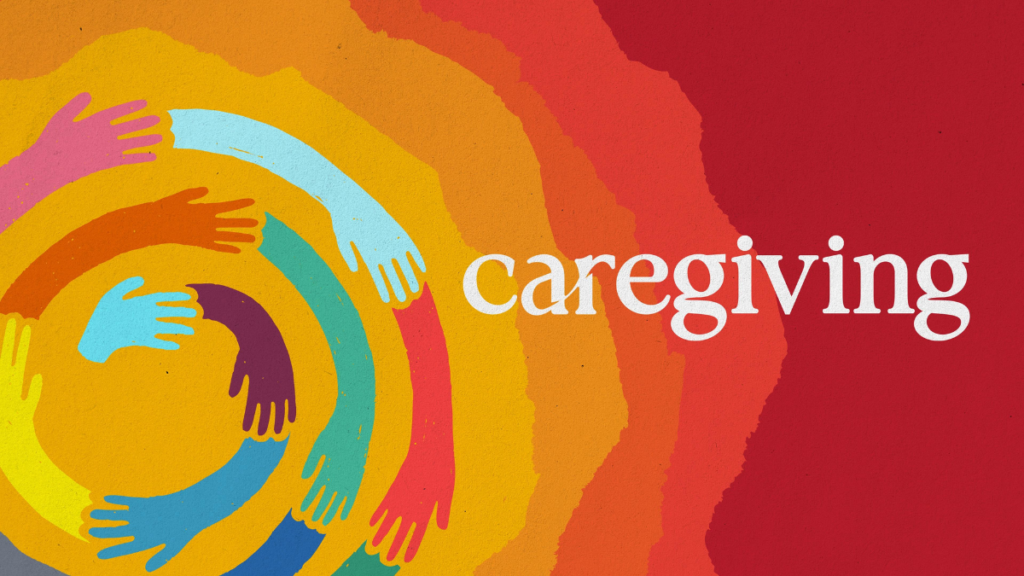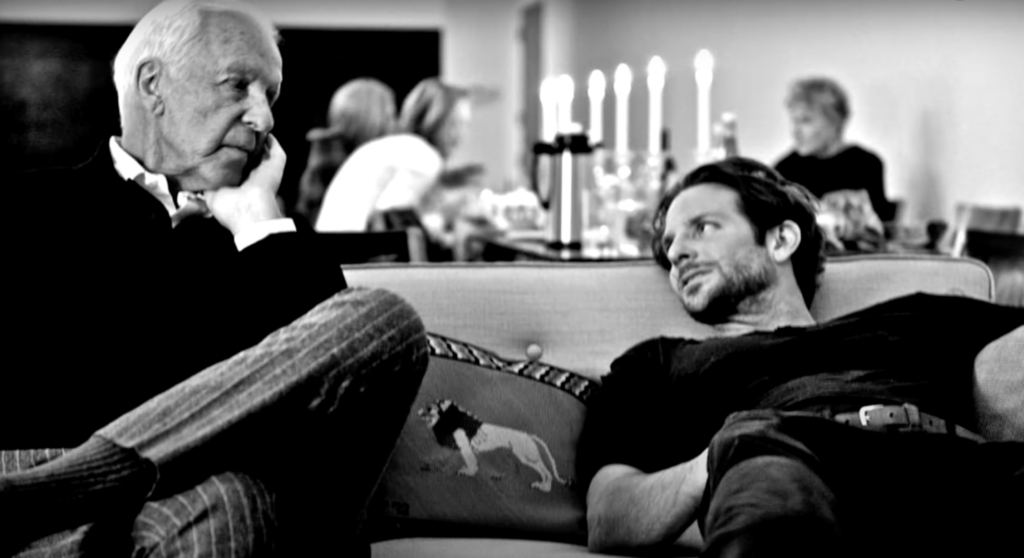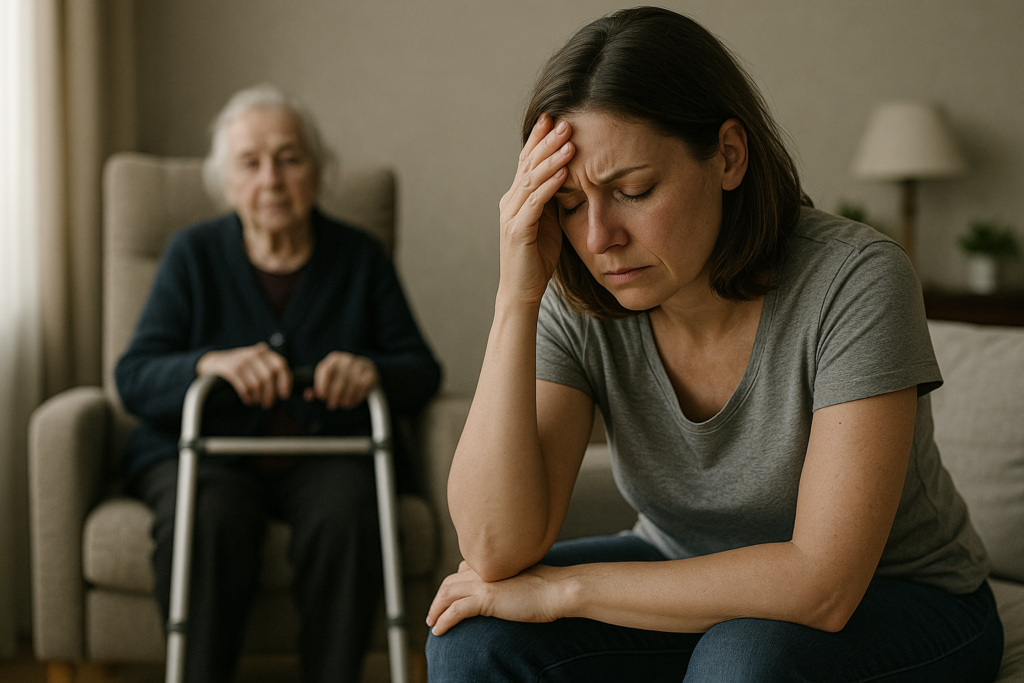Academy Award-nominated actor and director Bradley Cooper brings a personal and powerful vision to PBS this summer with Caregiving, a two-hour documentary spotlighting the urgent and growing challenges faced by caregivers across the United States. The documentary is now available for streaming on PBS.org and the PBS App, the film aims to foster national awareness around caregiving as both a human reality and a public health necessity.

- Bradley Cooper’s “Caregiving” Documentary is a powerful, two-hour film exploring the struggles and resilience of caregivers across America.
- Personal Stories from New York, Florida, Georgia, Colorado & Brooklyn Highlight Caregiver Crisis – Real families share emotional journeys of caregiving amid systemic challenges.
- Narrated by Uzo Aduba, the Film Offers a Deeply Human Look at Unpaid and Professional Caregiving – Featuring voices of caregivers from diverse backgrounds and expert insights.
- Campaign Includes Streaming Access, Short Films, and National Partnerships with Over 30 Organizations – Available on PBS.org, PBS App, and supported by Well Beings and Fred Rogers Productions.
- Over 53 Million Americans Provide Unpaid Care—A $600 Billion Crisis Explored in “Caregiving” – The documentary is a call to action to support caregivers and reform U.S. care systems.
Narrated by Uzo Aduba, the Emmy-winning actress known for Orange is the New Black and Painkiller, Caregiving is produced by Cooper’s Lea Pictures in collaboration with WETA Washington, D.C., and in association with Ark Media. The project is part of WETA’s acclaimed Well Beings campaign and will be accompanied by a national engagement initiative, 18 original short films, and digital storytelling tools.
A personal mission turned national movement
Bradley Cooper’s involvement stems from personal experience. “When my father was diagnosed with cancer, that was a wake-up call for me,” said Cooper, who cared for his late father, Charles Cooper, during his illness. “It opened my eyes to the world of caregiving. The level of loneliness can be overwhelming. Raising this conversation on a national level will help, and I believe we can make a difference.”
Uzo Aduba also brings personal resonance to her narration, having cared for her mother, who passed away in 2020. Her voice lends gravity and empathy to a film that gives voice to the often invisible labor of caregivers.

Caregiving : Stories of struggle, strength, and systemic challenge
The documentary introduces viewers to six family and professional caregivers from across the country:
- Matthew (New York): Became the primary caregiver for both his wife and son after a stroke and cancer diagnosis upended their lives.
- Jacob (Florida): A 14-year-old sharing caregiving duties with his father for his mother, who had multiple sclerosis.
- Tracy (Colorado): Balances her evolving role as caregiver for her father, who has dementia.
- Zulma (New York): A professional home health aide with a demanding commute who has become like family to her longtime client.
- Malcoma (Georgia): Quit her job to care for her husband with an incurable neurological condition.
- Kim and Guillaume (Brooklyn): Parents to Charlotte, who lives with severe brain damage following a birth-related brain bleed.
These narratives are interwoven with an exploration of the care system’s past and present, tracing its roots back to New Deal-era reforms under Frances Perkins, and examining how economic shifts, war, and an aging population have tested America’s caregiving infrastructure to its limits.
The numbers behind the crisis
According to studies cited in the documentary:
- Between 53 million and 105.6 million Americans provide unpaid care to loved ones.
- An estimated 5.4 million children and adolescents are also caregivers.
- The economic value of unpaid care in the U.S. was estimated at $600 billion in 2021 (AARP, 2023).
- Median annual pay for professional caregivers is approximately $23,688, with nearly half relying on public assistance.
Experts featured in the film include Ai-jen Poo (Caring Across Generations), Alison Gopnik, PhD (UC Berkeley), Paul Irving (Milken Institute), and Steve Schwab (Elizabeth Dole Foundation), among others.

Beyond the film: A campaign to elevate care
The release of Caregiving is just the beginning. The project includes:
- 18 original short films, launched between October 2024 and May 2025, highlighting diverse caregiving situations.
- A “We Are Well Beings Storywall” at wellbeings.org where individuals can share their own caregiving journeys.
- #ShareYourCaregivingStory and #CaregivingPBS campaigns on social media.
- Collaboration with Fred Rogers Productions to develop child-friendly caregiving content based on PBS KIDS series (Daniel Tiger’s Neighborhood, Alma’s Way, Donkey Hodie), launching Fall 2025.
The campaign also includes national partnerships with over 30 organizations, including the Rosalynn Carter Institute for Caregivers, National Minority Health Association, Lutheran Services in America, and the Elizabeth Dole Foundation, among others.
Caregiving : A call to action
“At a time when the U.S. care system is under increasing strain, Caregiving is not just a film, it’s a platform to build awareness, inspire empathy, and drive change,” said Chris Durrance, the film’s director and senior producer. “Our hope is that viewers walk away with a deeper appreciation for caregivers and are inspired to help shape the future of care in this country.”
Caregiving is produced by Lea Pictures and WETA Washington, D.C., in association with Ark Media. Executive Producers include Bradley Cooper and Weston Middleton (Lea Pictures); John F. Wilson and Tom Chiodo (WETA); and Barak Goodman (Ark Media). The film’s producers are Ruth Fertig (Ark Media) and Kate Kelly (WETA).
There are only four kinds of people in the world: those who have been caregivers, those who are caregivers, those who will be caregivers, and those who will need caregivers.
Rosalynn Carter, Former First Lady of the United States.
Where to watch :
This documentary is available on streaming on PBS or the PBS app.
Published by the Editorial Staff on
